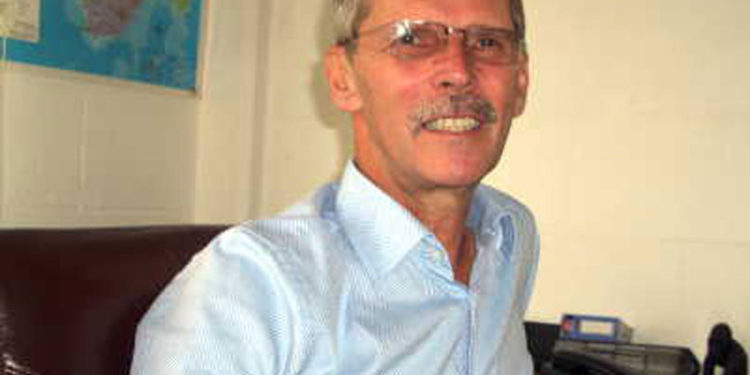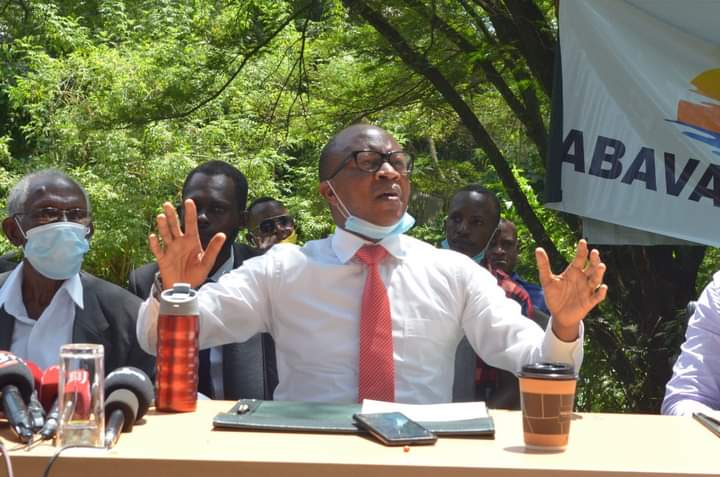Since we are scheduled to get back to normal this month, with schools opening followed by the lifting of the curfew, people are holding their breath to see how the latest surge in Covid will affect these plans. Uganda is now registering an average of 1,300 cases per day, which is 20% of those tested. We are therefore in a steep upswing, with the MOH actively assessing the capacity of the health system to cope. The new Omicron variant has proven to be extremely infectious with large numbers of people becoming infected worldwide, but while it is more infectious it is less virulent. The virus sticks to the upper respiratory tract more than the lungs so it causes symptoms more like the common cold (or ‘Flu’ as Ugandans call it) than pneumonia. Despite this, the WHO has warned that the Omicron variant should not be regarded as a mild disease.
Omicron was first identified in South Africa in October last year and some experts estimate that it has now caused infection in 50% of the population, though hospitalizations have remaining relatively low, and deaths much lower than from Delta. South Africa is currently reporting that the peak rate of infections has passed and they are seeing a significant drop, with one virologist commenting ‘we are in a good place’. This is a different reaction from other countries in the northern hemisphere that are seeing huge surges. The UK and a number of European countries have re-imposed restrictions and SOPs and ramped up testing. This increased testing has picked up massive numbers of positive cases, which has resulted in people having to quarantine, which has in turn caused staff shortages in essential services, not only the health services but in airlines and other transport services. Also, since airlines have insisted on travellers having a negative Covid test the British Airport Authority has seen a sharp decline in passenger numbers. They have appealed to the government for the regulations to be lifted to allow passengers to travel without testing, with the result that this week the UK announced that they no longer require pre-departure covid tests for fully vaccinated travellers.
China has been taking the approach of eliminating Covid altogether, but has detected a number of cases in Henan province, and has therefore re-imposed lockdowns in certain cities along with a massive testing program. Although Tanzania now recognizes the reality of the Corona Virus pandemic and has encouraged vaccination and SOPs, the Tanzanians have a more relaxed attitude and Omicron appears to be widespread. A few weeks ago a Ugandan parliamentary delegation visited Arusha and almost all became infected. Despite this, Tanzania is not suffering a crisis within the health system.
These different reactions to the Omicron variant by different nations, with some countries going into lockdown while others are allowing the surge to take its course can be explained by the unfolding of available evidence. The evidence is still being gathered, so some countries are being cautious while others feel there is reason for optimism. There are many variables, which affect the outcome of Covid, including the average age of the population, the average temperature, whether people are staying indoors or outdoors, the level of vaccination and which other diseases are prevalent in the population, so outcomes can vary in different nations. What we do know is that those who are double or triple vaccinated do not get a severe infection and most hospitalizations are for those who are not vaccinated. So Uganda’s policy of rolling out vaccinations as fast as possible, while encouraging SOPs, and opening up the economy appears to be a reasonable course of action. WHO has also stated that there is no place for more lockdowns in Africa since the harm they do to the economy has more adverse effects on the health of the population than Covid itself.
There is a concern that children are vulnerable to Omicron, and with schools opening we will see an upsurge in children, but sending children home would be counterproductive, since they would not only miss school but transmit the virus to their elders. With schools opening, lifting of curfew and opening up of the economy we are bound to see a continued increase in Covid cases, but we are hoping that this will follow the pattern of South Africa where it peaked and did not result in high numbers of serious cases. Unfortunately with the current available evidence we just don’t know for sure.
Do you have a story in your community or an opinion to share with us: Email us at editorial@watchdoguganda.com













